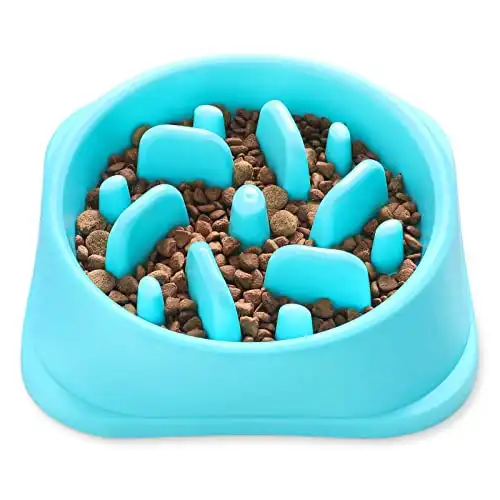Dog Crying After Eating – Is it a problem? (Solutions)
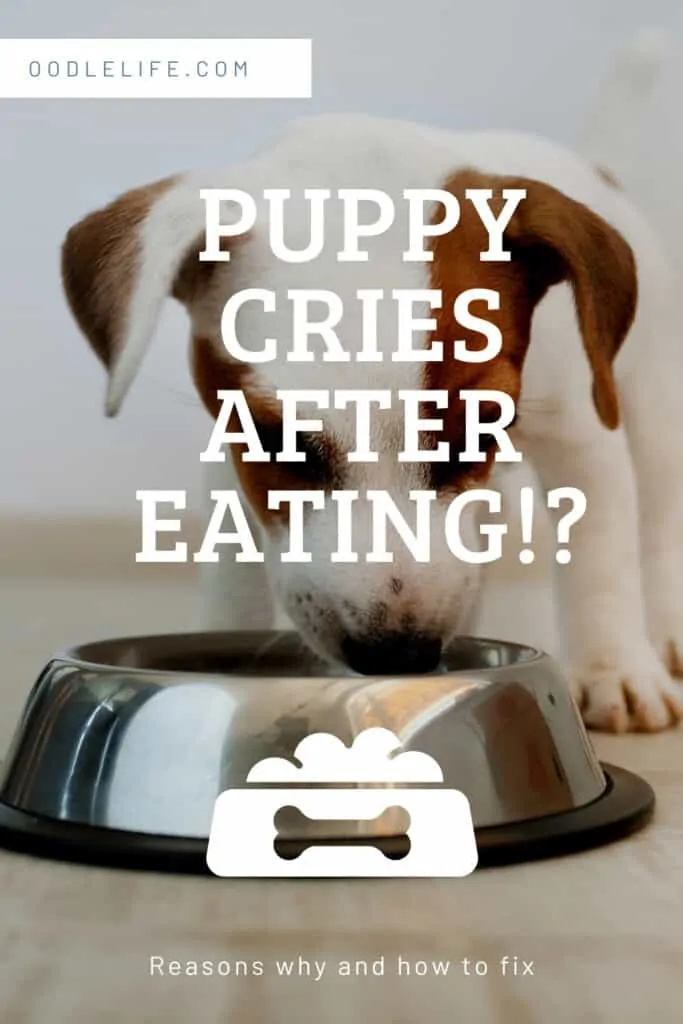
Dog lovers know that if our furry friend is even the slightest bit upset, we feel a lot worse than they do. We feel like we can’t ask them what’s wrong, and our dogs can’t tell us.
You might have experienced something like this after your pet finished eating and they started crying.
Keep reading if you want to know more about what this might mean, what you should do, and what you can try to resolve it.
A Dog Crying After Eating Is Not a Good Sign
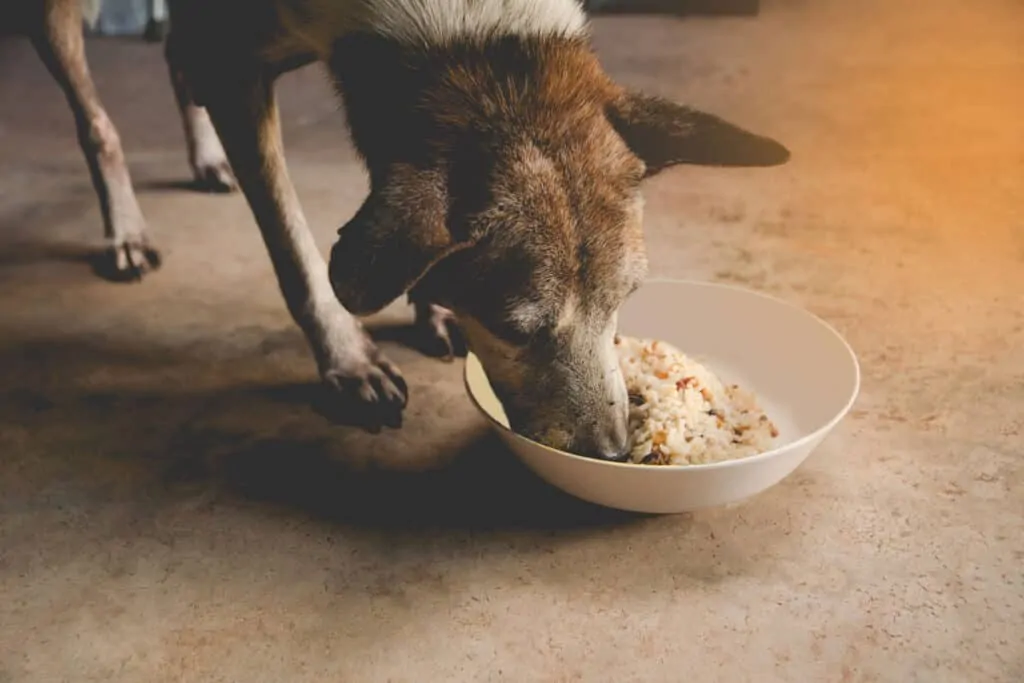
Dogs who cry after they eat are is not a good sign, and it could definitely cause significant concern. It’s essential to listen to it and definitely not ignore it.
Possible triggers for their behavior could include a lack of attention or that they are in pain.
So, if eating is causing them pain, you definitely have to look into this. They could have damaged or broken teeth, an infection, or issues with their digestive system.
In the best-case scenario, your dog is either overeating and is too full and gets air in their stomach. This is because this is an easy fix.
However, there is also the possibility that your canine is experiencing tonsillitis or a sore throat. We, as humans, can relate to how much this hurts.
Your furry friend might be traumatized from eating sharp foods or bones, which could have adverse effects on their eating behavior. If you have recently switched up their diet and your dog is crying after eating, they might be allergic to a particular food, and it hurts them.
Most of these causes, even if they seem minor, can eventually lead to an infection and spread further throughout the body. To avoid it reaching this point, the best idea is to take action immediately.
What To Do When Your Dog Cries After Meals
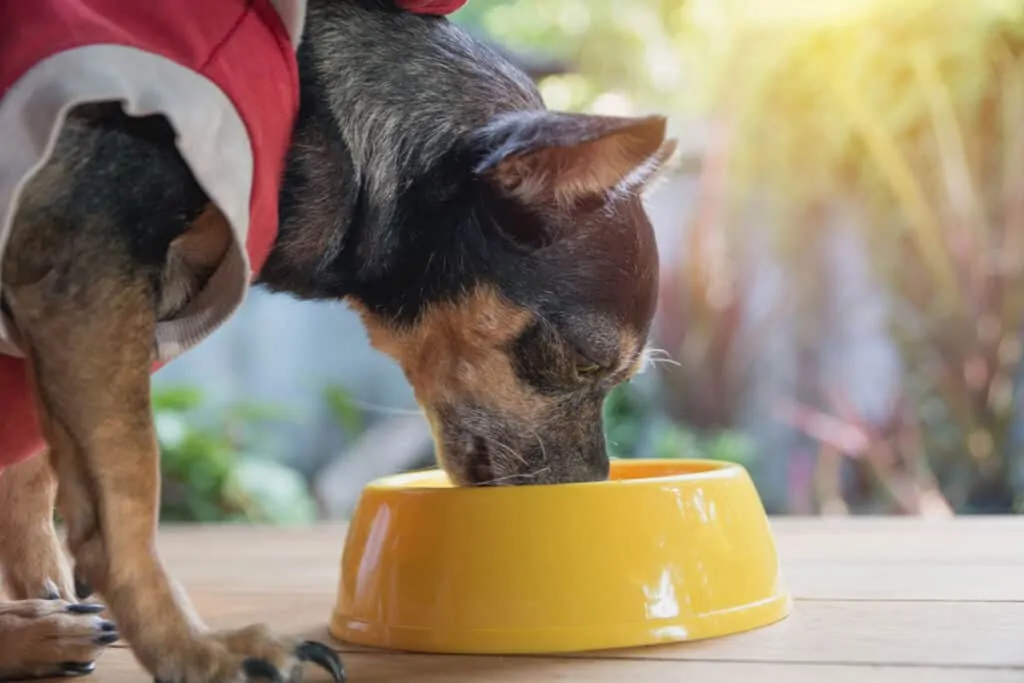
If you notice that your dog is crying after eating, the first thing you should do is go to the vet, but there are also some other practical steps to take.
First, you should write down all the symptoms that your little friend is experiencing. When you’ve done that, note down how often they happen. Try to link them to a specific time of day, the amount of exercise your dog does, or the type of food they eat.
If you notice these symptoms happening all the time, you should take this information to the vet. It might seem silly, but this is crucial information for the vet to know and can help them get further in their investigation.
Things To Try First
If you can’t wait to go to the vet, or you want to keep an eye on how your dog is acting for a little while, there are some things to try and see if they make a difference.
Getting Rid of Bones
Bones are known as a dog’s best friend, but they can also be very harmless and might be a cause for your dog to experience pain. You should think twice the next time you decide to give your dog a bone.
Bones can damage teeth and cause splinters that will damage your dog’s insides and throat, and of course, this can lead to infections. Try transitioning to a chewy toy instead, and chances are that your pet will actually prefer this, and the best part is that it is entirely harmless.
Switch To Smaller Foods
It might be that your dog is taking huge bites and that this is leading to them overeating and feeling full and bloated. This is one of the reasons why they could be crying. Foods that are smaller in size and more comfortable to chew and swallow could help with this issue.
The dog foods recommended for smaller dogs (e.g. this list of the best dog foods for Shih-poo dogs) can be given todos of any size. The smaller kibble may reduce the discomfort and stop the crying after eating.
Keep The Diet Simple
If you are not sure whether your dog is allergic to a particular food, it is best to keep their diet simple. Include foods that you have been giving them since the beginning, which did not cause any complications.
This is a good alternative until you figure out precisely what allergy they might have if you usually give them a diverse diet.
Although foods like carrots or coconut milk are safe for dogs, it is best to keep things simple and steer clear of these trends till the food related discomfort disappears.
Soak Hard Foods To Make Them Soft
Related to eating fast, if the food you give your dog is also dense or hard, it can again lead to overeating and them feeling bloated. It might also be an uncomfortable feeling in their throat if the food is too hard, so you might want to soak it in water before you give it to them.
A simple 5-10 minute soak can soften the food and make digestion easier.
Smaller Serving Size
If you have tried some of the methods above, but your dog is still crying after food, you might just have to give them less to eat. Chances are that your pet cannot tell when enough is enough, and so an indication of how much they should eat might help.
Eating Calm And Slow
It might also be the case that your dog is eating their food too fast and that this is causing their stomach to be upset. There are alternatives like unique food bowls that will help your pet eat the right amount of food but not rush and overeat.
A frozen Kong is a great slow feeder – and so are actual slow feeding dog bowls! Our Labradoodle Max eats almost every meal from a simple slow feeder bowl.
Crying In General – Other Causes of Dog and Puppy Crying
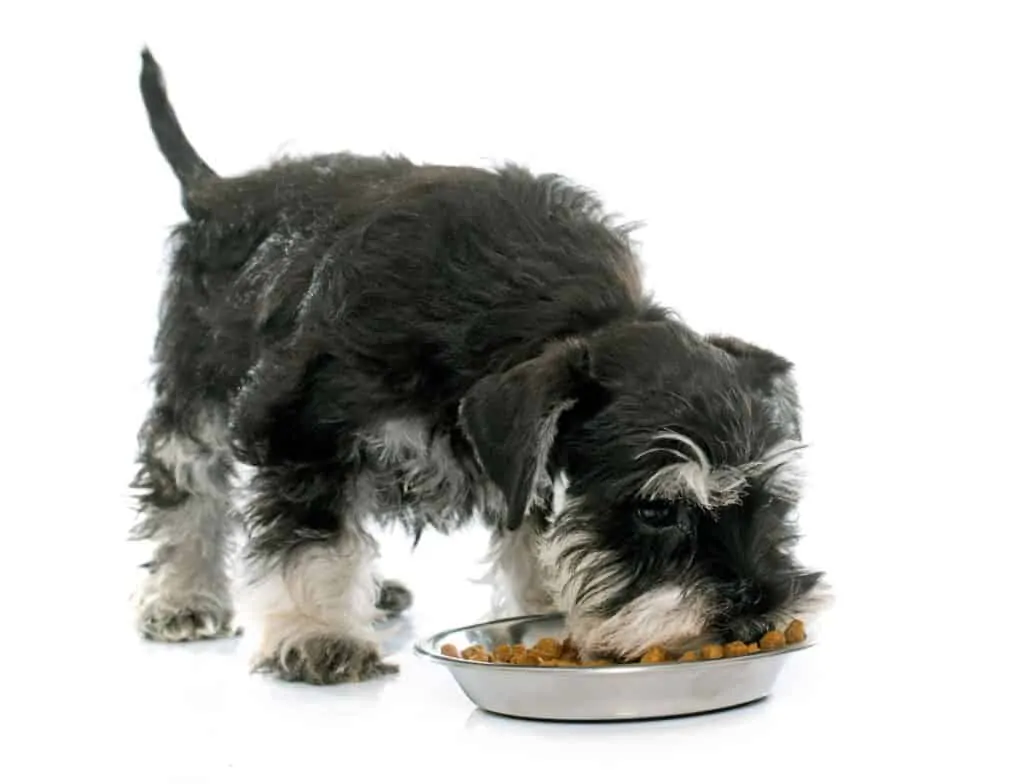
Just because your dog is crying after they eat does not have to mean that it is connected with food or eating. Most probably, it does have something to do with this, but maybe it is a coincidence that your dog decides to cry at this point in the day. Below are some possible reasons that your dog is generally crying.
Discomfort
Your dog might be feeling discomfort, possibly because of an injury or a different kind of pain. Again, you should look at the symptoms and keep a note of them as it could mean it is something more serious.
Your Dog Is Sick
Without showing any signs of pain in the joints or somewhere else on the body, your dog might be sick and has no other way of telling you they feel that way. If you don’t notice any other symptoms indicating something else, but they keep crying, your best bet is to take them to the vet.
Anxiety
If you have recently changed your dog’s surroundings, or if you have moved house, it is common for them to experience anxiety. It takes time for a dog to get used to their new environment. It would make sense for them to cry in this case because they are merely feeling restless and unfamiliar with their surroundings.
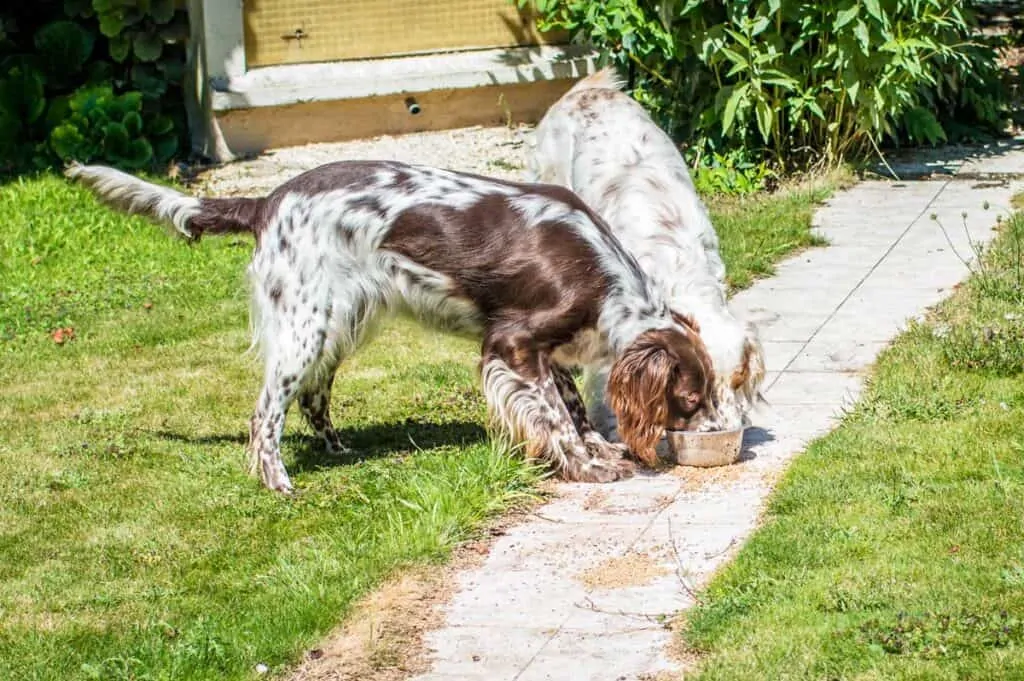
The Dog Needs Something
If your dog wants you to give them something, a toy, a belly rub, or attention, they will start crying. If your dog stops once you provide them with something to play with or attention, you probably have nothing to worry about.
They Are Bored
If your dog is not getting enough exercise or is not active enough, they will start to feel bored, in which case they will also start crying. Your pet needs to get enough movement during the day, not only for them not to be bored but also for health reasons.
Active dogs (e.g. the Cockapoo) need sometimes up to 60 minutes of active play or exercise per day.
Even small breeds like the Maltipoo dog need 20-30 minutes of walking or active play daily.
Dogs Crying After Eating Take Home Messages
To summarize, witnessing your dog cry, on any occasion, is not really a good sign. There are some instances in which they are simply in need of attention or a toy. If you know your pet well, you will in time be able to tell the difference between a serious cry or not.
Sadly, when it comes to crying after eating, many things could cause this problem, and some of the reasons are serious. From dental problems to stomach problems or skin allergies, it is hard to tell which one is precisely when it is internal. It gets more complicated given our dogs have no way of explaining what they are going through.
There are things you could try to do when it comes to the way you serve food. These include lowering their food intake, soaking the food in water to make it soft, or getting them a special bowl to eat too fast. All of these things can cause stomach bloating, and this can be very uncomfortable.
To avoid any infections or it (in the worst case) becoming lethal, it is essential to track the symptoms and keep a note of them. Of course, you should visit a vet as soon as possible because they will be able to tell exactly what your pet is going through and how to help them at the end of the day.
As a dog owner, you will know what to do and what feels right. If only our pet friends could talk to us and tell us what is wrong, but they can’t. It is vital to go the extra mile and help them live a long and healthy life.
